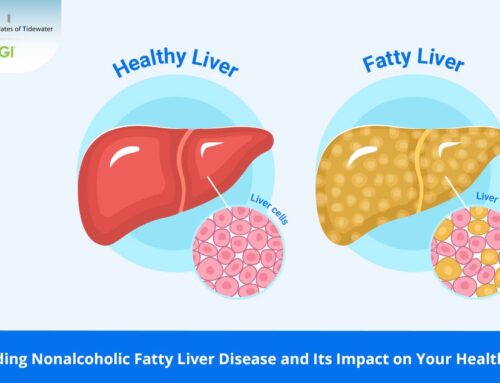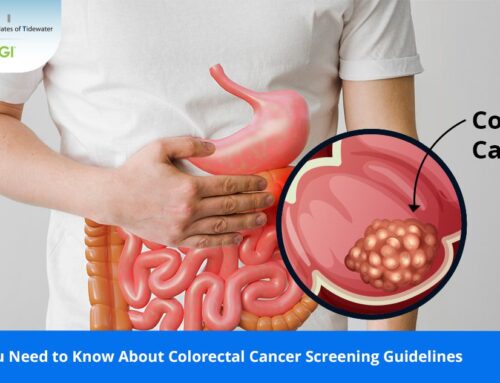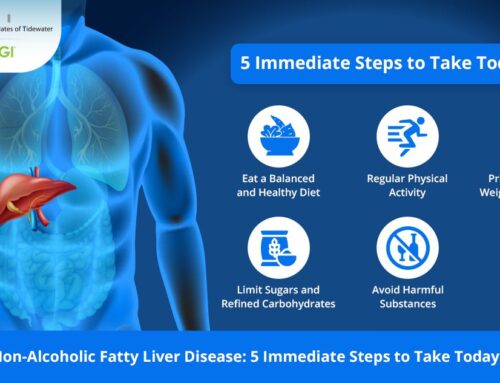Polyps are small, benign growths that can develop in various parts of the body, including the colon. Although most polyps are benign, it is important to understand that certain types can increase the risk of colorectal cancer. This article will delve into the details of polyps, their connection to colorectal cancer, and the significance of regular screenings like colonoscopies. We will also provide information about available treatment options and the essential role of a local GI doctor in Chesapeake, VA.
What are Polyps?
Polyps are abnormal tissue growths that can occur in different areas of the body. When it comes to colorectal health, polyps can develop in the colon or rectum. These growths can vary in size and shape, and they may be attached to the colon wall by a stalk or are flat and broad-based. Most polyps are benign and do not cause any symptoms or spread to other parts of the body. However, certain types of polyps have the potential to become cancerous over time.
The Connection to Colorectal Cancer
Colorectal cancer is one of the most common types of cancer worldwide. While not all polyps will become cancerous, certain factors can increase the risk. These factors include the size, number, and tissue characteristics of the polyps. Larger polyps, multiple polyps, and certain tissue characteristics are associated with a higher likelihood of developing colorectal cancer. Therefore, it is crucial to identify and remove polyps before they progress into cancer.
The Importance of Regular Screenings
Regular screenings, such as colonoscopies, play a vital role in the early detection and prevention of colorectal cancer. During a colonoscopy, a GI doctor or a gastroenterologist examines the colon and rectum using a long, flexible tube with a camera. If polyps are detected, they can be removed during the procedure, eliminating the risk of potential cancer development. Additionally, colonoscopies allow for the early detection of colorectal cancer itself, which significantly improves treatment outcomes.
Colorectal Cancer: A Preventable Disease With Regular Colonoscopies
Colorectal cancer is often known as a preventable disease, primarily due to the role of regular colonoscopies in its detection and prevention. The removal of polyps during a colonoscopy prevents them from progressing into cancer. Colonoscopies find and remove polyps, stopping the chain of events that could cause colorectal cancer.
Colonoscopies allow for the detection of colorectal cancer in its early stages, when it is more treatable and curable. The procedure enables physicians to examine the entire colon and rectum for abnormalities, such as polyps or tumors. If cancer is detected at an early stage, treatment options are more effective, and the survival rate is significantly higher. Therefore, regular colonoscopies are not only a tool for early detection but also a key preventive measure in the fight against colorectal cancer.
The American Cancer Society recommends that individuals at average risk of colorectal cancer start regular screenings at age 45. However, individuals with a family history of colorectal cancer or polyps should begin screening at an earlier age. Additionally, people with certain genetic syndromes, inflammatory bowel disease, or a personal history of radiation to the abdomen or pelvic area should talk to their doctors about when to start screenings and how often they should be performed.
Expert Care and Advice in Chesapeake, VA
When it comes to your colorectal health, seeking expert care is crucial. A local GI doctor in Chesapeake, VA, can provide you with the necessary expertise and guidance to address your concerns about polyps, colorectal cancer, and treatment options. They will work closely with you to develop a personalized plan that fits your needs and ensures your overall health and well-being.
Understanding the relationship between polyps and colorectal cancer is essential for maintaining good colorectal health. Regular screenings like colonoscopies allow for early detection and removal of polyps, reducing the risk of cancer development.
For more information or to schedule a consultation, contact Gastroenterology Associates of Tidewater by calling (757) 547-0798.






